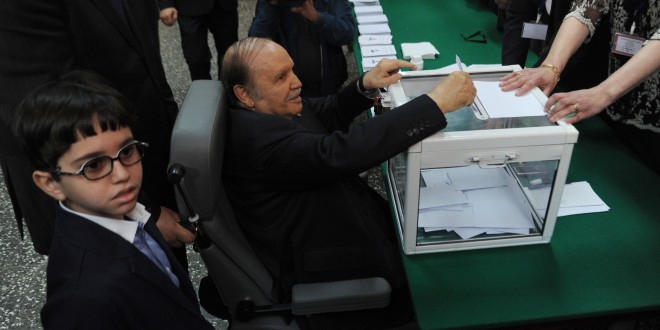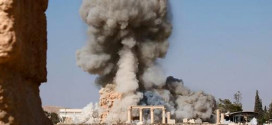On Friday, Algerian President Abdelaziz Bouteflika won his fourth Presidential election by a landslide despite his ailing health, in an election tainted by allegations of fraud and a poor turnout. The 77 year old voted from his wheelchair on Thursday, and picked up 81.53% of the votes; his main rival Ali Benflis received only 12.18% of the vote.
In a news conference, Interior Minister Tayeb Belaiz reported the results, and said that “the people have chosen freely, in a climate that was transparent and neutral”. Ali Benflis had earlier cited “serious irregularities” all over the nation on polling day, and swiftly declined to recognize the result. “Recognizing it would be complicit in fraud”, Benflis said, condemning what he called “an alliance between fraud, suspicious money and the bought media”.
Bouteflika’s victory was widely expected – his supporters were already seen celebrating in Algiers after the polls closed on Thursday, with the media anticipating his victory before the results were released on Friday. Only a year ago, Bouteflika had suffered a stroke which confined him to a hospital for three months and impeded him from campaigning in person for his re-election.
The veteran leader’s re-election, who has ruled the nation since 1999, has provoked outrage amongst younger Algerians desperate for change, amid high youth unemployment, sectarian unrest and widespread corruption. In his campaign, he had promised “a broad democracy where every citizen will take part in the country’s development”.
Analysts warn that the rising instability in the country over social issues and the government’s failure to focus on them. Political analyst Rachid Tlemcani says “Bouteflika’s re-election will pave the way for a period of instability characterized by social discontent that will get worse. The powers that be, embodied by Bouteflika, will no longer be able to buy the social peace, as they did during his three previous mandates, because of a probable fall in the country’s oil revenues”.
 The Arab Democrat The Latest From The Arab World
The Arab Democrat The Latest From The Arab World





